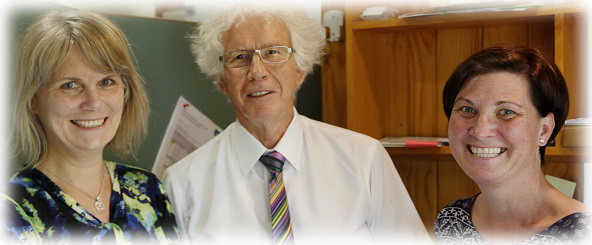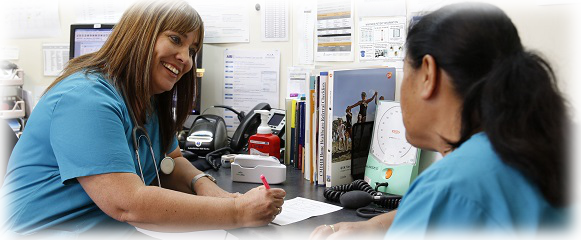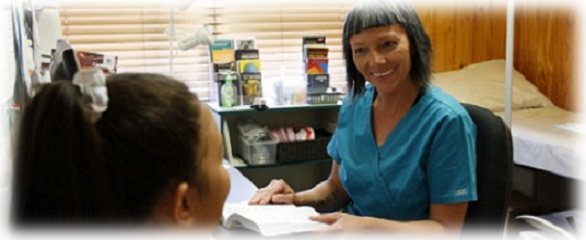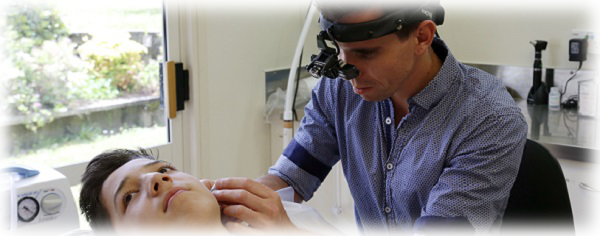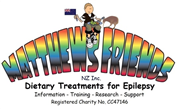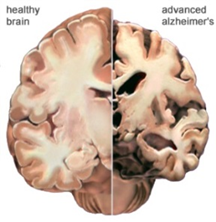May Newsletter
2013
Hi again to everyone in the Millhouse Community and to our other readers. This newsletter highlights current events at Millhouse Integrative Medical Centre and continues the discussion on lifestyle changes and nutrients for prevention and treatment of cognitive memory loss and Alzheimer Disease.
Welcome to Dr Alet Stoltz and her patients
Dr Alet Stoltz has relocated her busy practice from Howick House Medical Centre to our Millhouse clinic. We welcome her patients and will keep you informed through email and text communication on the latest practice happenings. You can also visit www.millhousemedical.co.nz to find out more about us.
Flu Vaccination
If you are over 65 years or have a chronic illness (heart disease, asthma, kidney disease and diabetes) remember that you can get a FREE flu vaccination; they are still available by making an appointment with the Practice Nurse.
>>>Learn more about this...
Remember to supplement with Vitamin D during winter
Vitamin D enhances your immune response and antibody production against the threat of flu viruses and colds, and is probably best taken daily. Vitamin D drops for children can be purchased from Reception. For adults, I suggest the 50,000 unit Cholecalciferol tablets which can be obtained on prescription; I recommend 1 tablet taken every two weeks during the winter months, or when there is no effective sun to stimulate vitamin D production in the skin.
>>>Learn more about this...
E-appointments are here
Have you used the easy and convenient way to book an appointment yet? Click on ebooking (top and bottom) at www.millhousemedical.co.nz and you will be taken to the ConnectMed host site where you can select your doctor and an appointment time. On your first visit you will have to register and select a password before proceeding further. When booking an appointment for your child, just use your name and inform Reception of the change on your arrival.
I am sorry that, at this stage, we cannot offer nurse appointment or bookings for minor surgery.
>>>Learn more about this...
E-CHAT
We have introduced the E-CHAT iPad 'non-threatening and confidential' assessment at 130 Millhouse. This takes only a few minutes to complete and explores how you are coping with the challenges of daily living. It will soon be available at 128 Millhouse. A summary of your answers are recorded confidentially in your medical file. Feel free to discuss with your doctor any problematic issues identified.
>>>Learn more about this...
In this issue...
Welcome to new
doctor Alet Stoltz and her patients
Flu Vaccinations free to some, otherwise $25.00
Vitamin D for Winter
Online Appointments up and running
i-pad self-assessment
This month Dr Ric continues writings about the
the role of Nutrients in
Brain Function
Dr Ric writes:
Ketogenic Diet in Epilepsy.
After the March newsletter focussing on the beneficial use of a ketone-producing diet (where ketones act as an alternative brain cell fuel for glucose), I was contacted by Susan Hill of Howick. She told me of her son who suffered uncontrolled epilepsy from a young age, despite using anticonvulsant therapy, but who has found relief from seizures by adopting a ketogenic diet. Susan has partnered with UK charity Matthew's Friends
(www.matthewsfriends.org) - a sister organisation to the USA-based Charlie Foundation (www.charliefoundation.org) - to support and promote the use of ketogenic diets here in New Zealand. These diets are especially useful treating intractable epilepsy, and some other conditions amenable to ketone therapy. Both organisations have useful information on their websites about commencing a ketogenic diet, food choices and recipes, and a support blog for parents.
Susan has made it her mission to have ketogenic therapy reinstated at Starship Children's Hospital; parents who choose this treatment for children with epilepsy will now be given more effective education and nutritional support. I recounted last month about children with epilepsy who adopt a ketogenic diet and that slightly more than half will have 50 per cent improvement in their seizures, one-third will have greater than 90 per cent improvement, and about one in six become seizure-free.
Dietary Therapies
There is often reluctance to introduce dietary changes to relieve a medical condition. It is hard work to change ingrained patterns of eating, learn new ways of preparing and cooking food, and adjust to different taste sensations. If you embark on a diet change, do involve your family, tell them what and why you are doing this, and ask for their support in your journey to improve health.
Food changes can be very successful in treating many conditions from childhood epilepsy, asthma, irritable bowel, cancer and even Alzheimer's disease.
The Steve Newport Story
In the March newsletter I discussed the amazing story of Steve Newport, who was diagnosed with Alzheimer's Disease at 53 years. When he adopted an organic ketone-producing diet (i.e. a ketogenic diet his cognitive function and mental well-being amazingly improved. The new epidemic we now face is Alzheimer Disease (AD) which affects 50% of all people living beyond 85. It is predicted that by 2050, 2.6% of New Zealanders (148,000 people) will have the disease. AD will place an increasing financial burden on our health resources, and limit spending in other areas.
The important question we must ask now is:
Are there strategies we can adopt to prevent AD?
Can Alzheimer Disease be prevented?
I recently attended the Science and Nutrition in Medicine Conference in Sydney, where presenters discussed ways of preventing cognitive decline and Alzheimer Disease in the elderly. I was reminded that with normal ageing our brain slowly shrinks, at about 0.5% each year, but in those with memory loss (cognitive impairment) the rate is found to be 1%, while in Alzheimer's Disease (AD) the shrinkage has accelerated to 3% annually. The AD brain is slowly destroyed (see graphic) as beta amyloid protein accumulates in critical areas over a twenty year period and by the time diagnosis is made medication is rarely successful in restoring cognitive function. The table below outlines risk factors and protective influences for the development and prevention of AD.
Professor David Smith from Oxford University discussed the importance of lowering homocysteine levels in the elderly. Homocysteine is a breakdown product, formed after the sulphur-containing amino acid methionine releases a methyl (CH3) group that acts as a switch, turning on important cell-building activities like cell division. In the 1960's doctors in Belfast and London studied children with homocysteinuria, a rare genetic disorder routinely identified by testing at birth, causing high homocysteine levels in the urine. They looked at ten children who had died from blood clots in the brain, heart and kidneys. and found hardened arteries with fibrous plaque formation. More recently, researchers have wondered if the slightly raised levels of homocysteine found in 10% of the population (due to genetic mutation, vitamin deficiencies and lifestyle factors) might also cause artery disease as we age. So far no preventative trial has been done but intervention studies lowering homocysteine in patients with vascular disease have been equivocal.
Does homocysteine affect cognitive decline with age?
In 2010, Professor Smith published the results from the VITACOG trial where 168 elderly with mild memory impairment were either given B vitamins (pyridoxine 20mg, folic acid 0.8mg & B12 500microgm daily) to lower homocysteine levels, or no treatment. After two years brain scans revealed that the B vitamin group had reduced brain shrinkage particularly in those who formerly had high homocysteine levels; 53% less change was observed in those with levels over 13.
Professor Smith believes that lowering homocysteine reduces the formation of neurofibrillary tangles and brain atrophy seen in Alzheimer's disease. His advice is that low-cost B vitamin therapy is given to elderly folk who have a homocysteine level greater than 11. He also recommends serum B12 levels in older persons be maintained above 300pgm/ml to prevent cognitive decline. (Currently B12 deficiency is defined as <180)
Recommendations to prevent and treat Cognitive Decline and Alzheimer Disease:
• Reduce your risk factors if at all possible. See table at right.
• At risk elderly could consider blood testing for ApoE4, homocysteine, B12 & folic acid, CRP (inflammation), ferritin (iron) gluten/gliaden, testosterone & LH (in males) as well as the usual tests for diabetes, cholesterol, liver & kidney function.
• Consult a neurologist if you are concerned, and
consider having an MRI brain scan.
A Healthier Diet:
• To prevent AD adopt a Mediterranean diet rich in vegetables, dark fruits, spices, nuts & seeds, with olive oil, fish, organic meats, milk and eggs.
• If you have been diagnosed with AD, trial a ketogenic diet with added coconut oil for 3-4 months. Involve your family in the food preparation and cooking. The diabetic drug metformin may also improve brain glucose energy use.
Exercise & Lifestyle:
• Perform short bursts of vigorous exercises that are suitable for you, 2-3 x weeks. See a personal trainer for advice.
• Keep your mind active with puzzles, pastimes and hobbies. Be a lifelong learner and engage with people daily.
• Avoid drugs that may impair memory and aggravate AD. Discuss medications with your doctor.
Consider nutritional supplements:
(Nutriceutical trials are underway in Australia & USA for AD)
• B vitamins - B6, Folic acid and B12. Niacinamide (B3) increases cell energy production.
• Melatonin, an antioxidant hormone produced by the pineal gland, protects the hippocampus memory centre from damage.
• Reduce brain inflammation & oxidative damage by using turmeric (active ingredient curcumin). Also consider Resveratrol or Enzogenol, Vitamin D, DHA omega fish oils, Vitamin C, natural mixed Vitamin E, Coenzyme Q10, Magnesium. The botanicals of Gingko, Rosemary & Sage may be useful.
• Increase glutathione brain cell detoxification with Alpha lipoic acid & N-acetyl cysteine.
I am hopeful that in the future we will know even more about these degenerative diseases.
Predisposing Risk Factors in AD
Increasing age Strong family history of ADGenetic – Downs Syndrome, ApoE4 Mild cognitive impairment.
Repeated head trauma
(blood iron released causes cellular damage;
also occurs in hemochromatosis iron storage disease).
Diabetes & obesity Excessive alcohol & recreational drugs
Vascular risk factors - smoking, blood pressure, raised cholesterol, diabetes, lack of exercise, poor social engagement & depression. Raised homocysteine & low B12 levels
Low testosterone levels & high luteinising hormone levels
(affect memory) Toxic environmental chemicals
(heavy metals, nitrosamines & ceramides especially from food processing)
Microbiological agents
(herpes virus)
Protective Factors in AD
Mediterranean diet with phytochemical enriched vegetables & fruits.
Protective nutrients which include B vitamins, vitamin D, turmeric/curcumin, resveratrol, DHA-omega 3 fish oil, green tea & pomegranate juice.
Performing vigorous exercise
Lifelong learning and social engagement
Yours in good health
Dr Richard J Coleman
www.millhousemedical.co.nz



